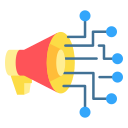In today’s rapidly evolving digital landscape, artificial intelligence (AI) is redefining the parameters of marketing success. The integration of AI technologies into marketing strategies allows brands to engage customers in more dynamic, efficient, and personalized ways. By leveraging AI insights, companies can maximize reach, optimize campaigns, and deliver tailored experiences that resonate with individual consumer preferences. Understanding how to effectively harness AI for targeted marketing campaigns is not just a competitive advantage; it’s becoming essential. This comprehensive exploration delves into the transformative power of AI, demonstrating how businesses can unlock new levels of personalization, prediction, automation, and performance in their marketing efforts.
The Evolution of AI in Marketing

Personalization at Scale
Leveraging Customer Data for Deeper Insights
Unlocking Hidden Patterns in Big Data
Enhanced Customer Journey Mapping
Real-Time Feedback and Sentiment Analysis

Intelligent Content Creation and Distribution
Automated Bidding and Budget Allocation
Workflow Management and Task Automation
Enhancing Customer Experiences with AI

